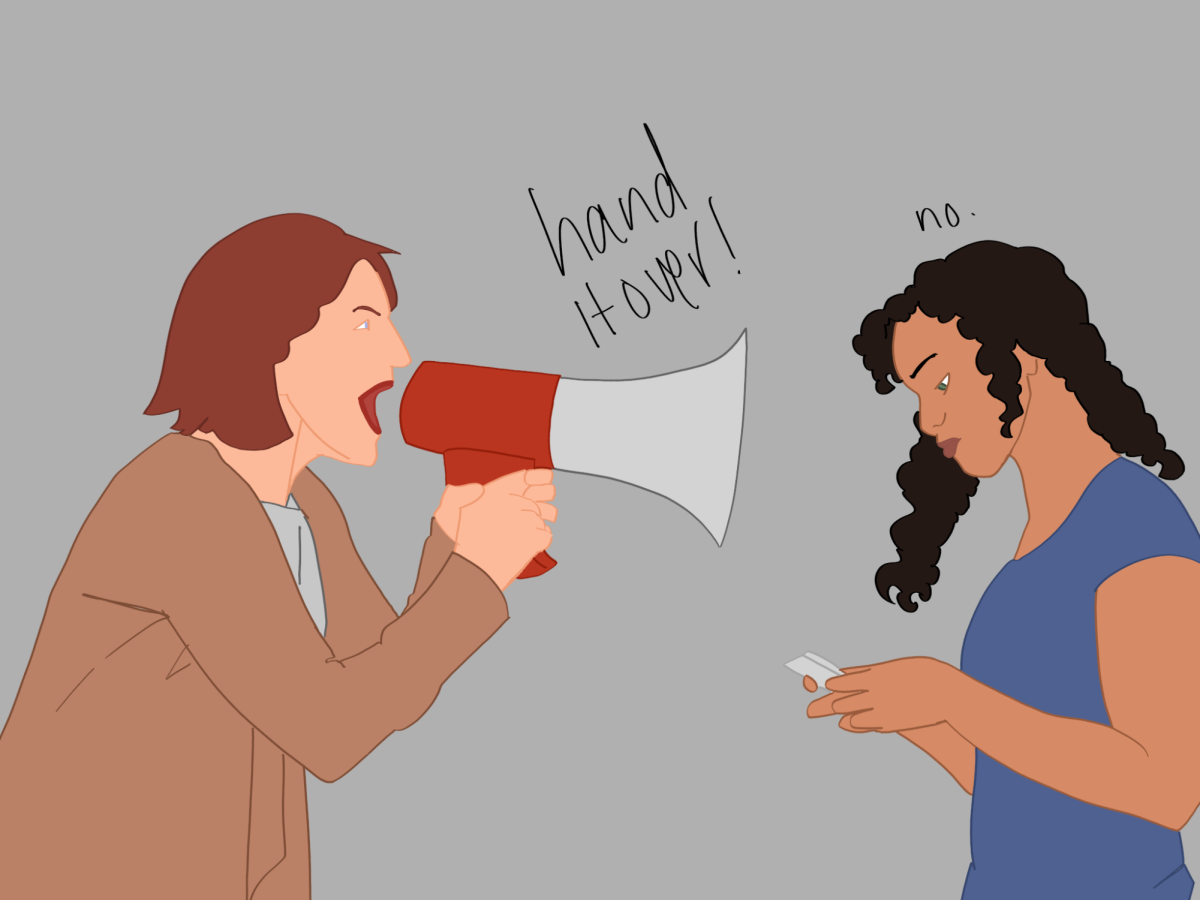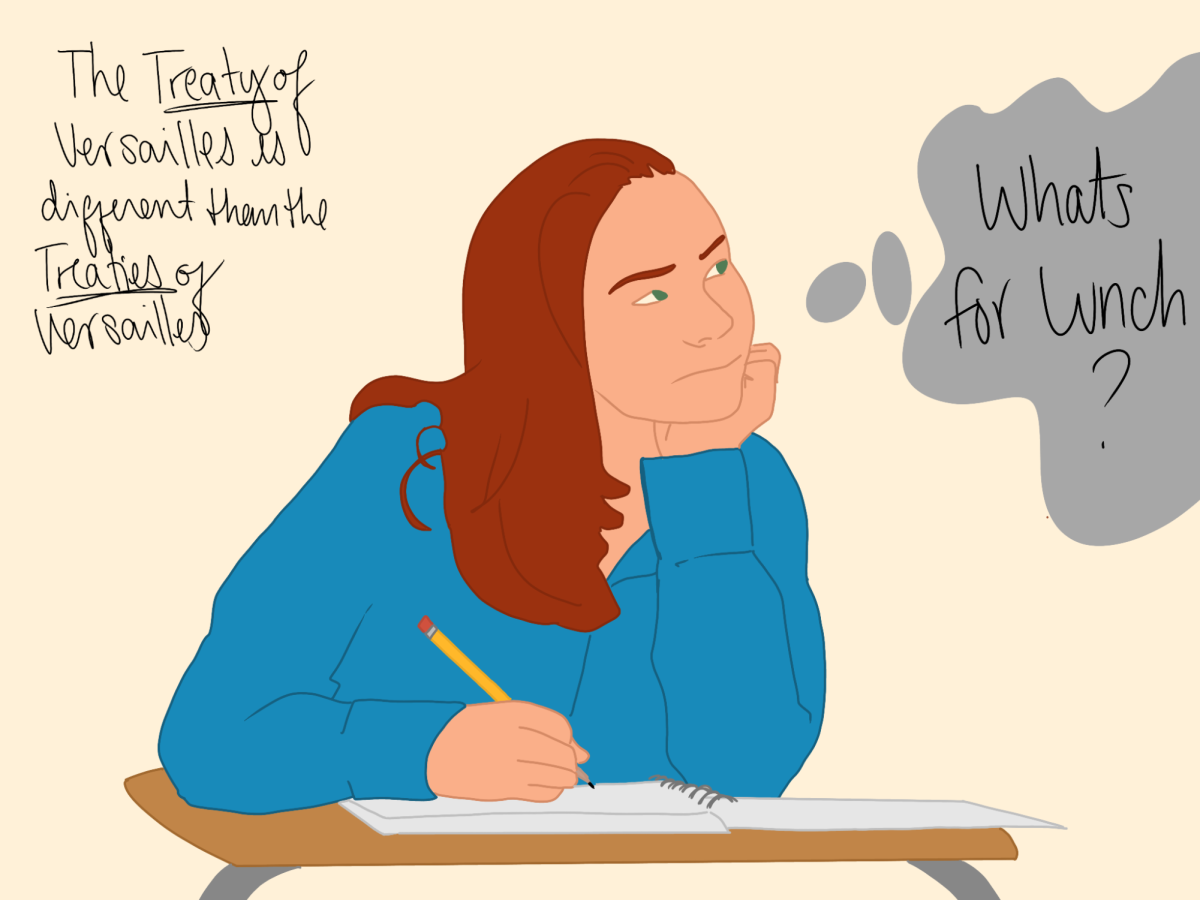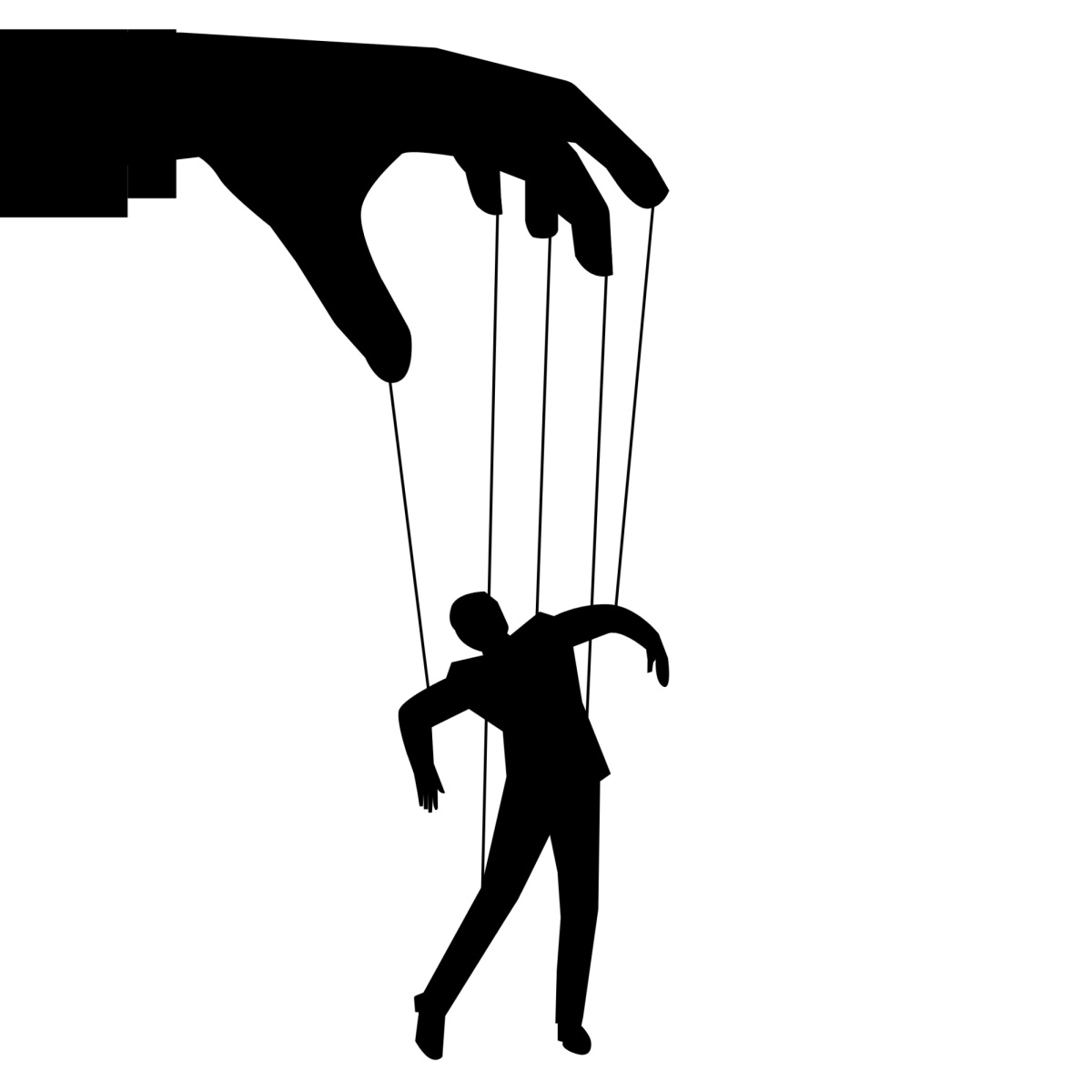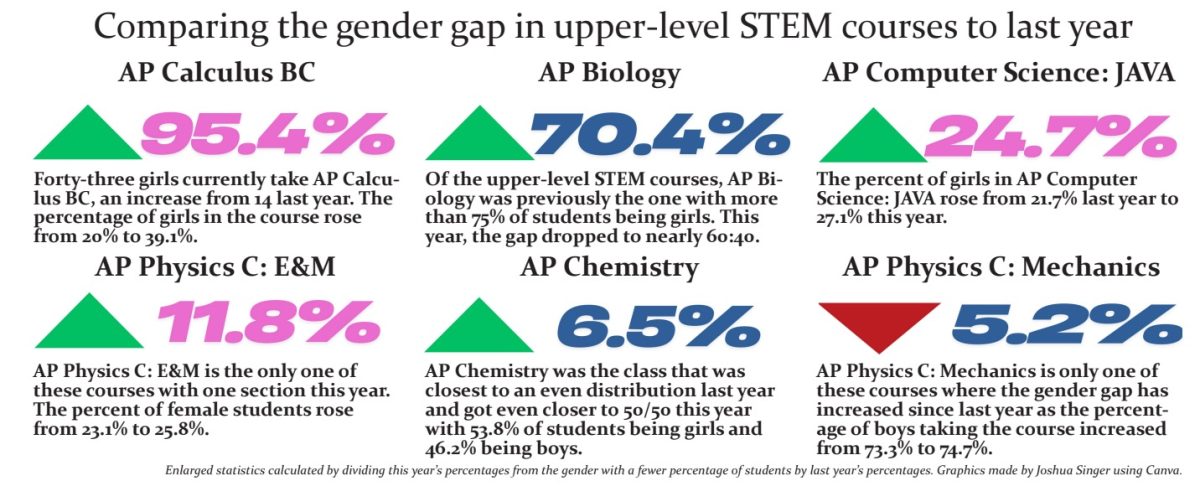A student looks for the answers on their palm during the test. Another uses AI to check their essay while the third copies their homework off their friend. Are they cheating?
Cheating is not a new problem. Even decades ago, cheating involved plagiarizing papers and writing test answers on sticky notes. These things still occur today. However, getting caught in class was final, and there was rarely debate between the teacher and student. It was more apparent what academic dishonesty was, both to students and faculty.
“If you got caught cheating, it was a disaster because then all of the teachers looked at you like, ‘Oh, we can’t trust you anymore,’” social studies teacher Elizabeth Muehl said.
MCPS does not define “cheating” within its Code of Conduct. Instead, under “academic dishonesty,” examples such as forgery, plagiarism and the broad term of “cheating” are listed with their varying punishments. It is exactly this lack of distinction that leads to confusion and conflict.
In a recent survey of students and faculty at WJ, 96.3% of teachers answered that cheating is never acceptable, while 39% of students stated that it depends.
Especially in the age of the internet, the question of what is classified as cheating is a heightened point of contention between students and teachers.
“I think as students, you guys like to find the gray areas and kind of hang out in there,” math teacher Samantha Arenberg said. “I think as a teacher, it’s a lot easier for things to be black and white. Cheating is never acceptable.”
This apparent moral question means that students feel they have a leg to stand on if they are ever caught. It’s common for students to argue with teachers and say they don’t deserve a zero for whatever they were doing.
“To them [teachers], anything that …they don’t allow in the code of conduct is like cheating. But to us, it’s not,” an anonymous student said.
Copying on practice/preparation assignments is so common that most students don’t think of it as cheating. Practice/preparation assignments aren’t graded for accuracy, which explains why copying and plagiarism go largely undetected by teachers.
“I feel like they also don’t care as much about practice prep,” senior Hal Fischer said. “Like, as long as you can get it done, you’re fine. But all tasks they definitely do care about academic dishonesty.”
 Twenty years ago, when all assessments and assignments were on paper, there were a limited number of ways to cheat. Now, with the integration of computers in schools and the availability of AI, the ways to cheat are practically unlimited. Teachers and students disagree about whether utilizing these new tools, such as ChatGPT or SparkNotes, count as cheating.
Twenty years ago, when all assessments and assignments were on paper, there were a limited number of ways to cheat. Now, with the integration of computers in schools and the availability of AI, the ways to cheat are practically unlimited. Teachers and students disagree about whether utilizing these new tools, such as ChatGPT or SparkNotes, count as cheating.
“It’s not okay all the time,” sophomore Omer Granit said. “Just if it’s a necessity, because at the end of the day, you gotta get a good grade. That’s it.”
The reality is that most students simply don’t think about why they shouldn’t be cheating or rationalize why it’s admissible. Excuses like, ‘the teacher was bad’ or ‘I was busy’ are routine.
“Cheating is kind of a necessity,” junior Yael Saltzman said. “When you’re under a time crunch, cheating sometimes can be the only answer.”
Many teachers are making an effort to limit cheating, but it is a constant battle.
“I would hope they feel guilty,” Muehl said. “I hope they realize that that’s not truly learning.”
For some teachers, the strain of constantly arguing with students and parents is too much, and instead, they let some things slide. The students, of course, recognize and take advantage of this.
“If the teacher doesn’t know how to teach, then I’m gonna cheat. I’m sorry,” the aforementioned anonymous student said.
This widespread, unashamed attitude towards cheating is baffling to many teachers. It reflects the broader disregard for school and academic integrity. There are several theories as to why this attitude has spread, but some trace it back to the pandemic and online learning.
“It was Zoom school, so I didn’t really feel guilty,” sophomore Bettel Kebede said. “Everybody was cheating.”
Any lasting change will have to be enacted by students. Teachers already make tremendous efforts to combat cheating such as having students complete assignments on paper.
“It’s just part of the job,” chemistry teacher Michael Bauer said. “Kids have always cheated. It’s just how they cheated has changed, and you just adapt.”
At the end of the day, students cheat for the same reason they did 20 years ago: because it’s easier and they can. However, unless students confront the reality of what they’re doing and why it’s wrong, the student culture of loose morals will continue to clash with faculty, causing conflict where it was previously straightforward.









